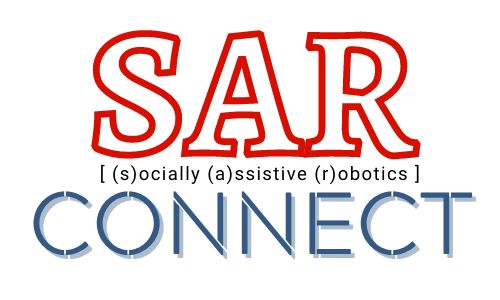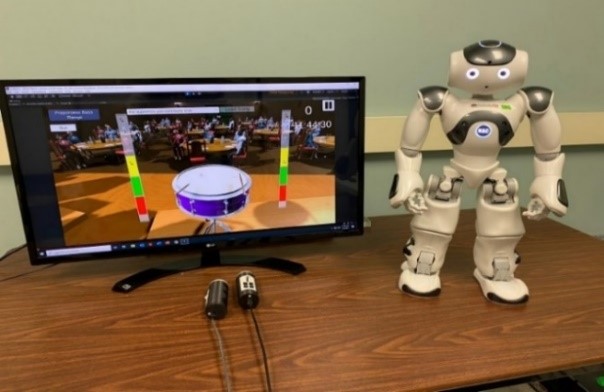SAR (Socially Assistive Robotics) Connect

Personnel: Miroslava Migovich, Ritam Ghosh, Nibraas Khan, Kelley Colopietro, Lorraine Mion, Nilanjan Sarkar
Goals/Objectives:
- Reduce apathy in older adults with mild cognitive impairment (MCI) through the use of virtual reality activities that include cognitive, physical, and social aspects
- Provide quantitative measurement of engagement and adaptation of human-robot interaction and human-computer interaction based on multimodal data input
Outline:
A large proportion of older adults residing in long term care (LTC) settings, such as nursing homes and assisted living facilities, suffer from Mild Cognitive Impairment (MCI), Alzheimer’s disease (AD) and AD-related dementias (ADRD). Apathy is common in persons with AD and ADRD with prevalence rates up to 72%. It is associated with further cognitive decline, functional deficits, reduced quality of life, social isolation, and increased mortality. Apathy imposes significant burden on LTC staff and negatively impact quality of care, staff satisfaction and turnover. Since few pharmacologic options exist, a major strategy is to foster older adults’ engagement in social, physical and cognitive activities, primarily those that are multimodal in nature. However, these interventions often require significant personnel time and resources, a major concern given the current nursing shortage and high turnover among LTC nursing personnel. SAR Connect consists of various VR based activities including a humanoid robot, Nao, and a animal robot, Aibo. The activities all consist of cognitive, physical, and social aspects that are completed in pairs. The task provides feedback to the participants to encourage engagement and communication.
Aim 1, consisting of participatory activity design, has been completed. Aim 2, consisting of data collection for a full study, will begin shortly.
